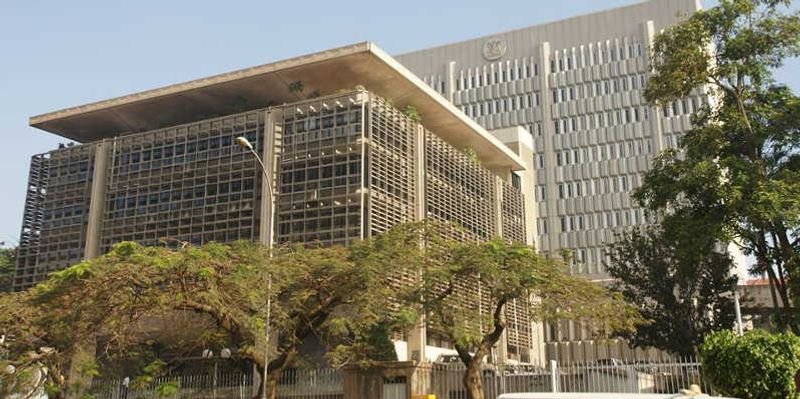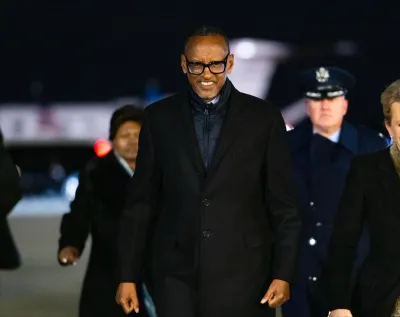

Bank of Uganda prides itself in keeping prices stable. But many agree that the time has for the central bank to expand its mandate
The debate should change from whether the BoU should be given additional mandate to what tools are needed to achieve it
Last week, Bank of Uganda celebrated its Golden Jubilee. Congratulations. Among the many activities they held, I got the opportunity to attend the Joseph Mubiru Memorial Lecture at Serena International Conference Hall. The topic was equally historic, “African Central Banks: Rethinking their Role, or Staying the Course? Learning from Global Experience.”
I could kill to get into Serena Hall on Tuesday, August 2, 2016. Why? Ten years ago, on the occasion to celebrate 40 years of the Bank of Uganda (BoU), I attended a public lecture by the late Prof. Ali Mazrui at Makerere University. Mazrui was an academic giant. His statements were often treated as treatises. On this occasion, he surreptitiously called upon the BoU to rethink its mandate.
Bank of Uganda focuses primarily, or even exclusively, on maintaining price stability. This is the traditional function of central banks that follow “inflation targeting” as their monetary policy objective. It was first adopted by the central bank (reserve bank) of New Zealand in 1990.
The BoU adopted inflation targeting in July 2011. Even before they formally adopted it, Bank of Uganda has historically been an implicit inflation ‘targeter’. BoU officials you will speak to often argue that achieving price stability on the order of low inflation — the 5% a year target — results in achieving other goals of the economy. However, if Uganda were to be considered as a laboratory to test this hypothesis, the results will be much different.
It is agreeable that the BoU has in the past two decades maintained a relative stable macroeconomic environment with inflation confined within single digits. This is an achievement to which the bank deserves credit given the history of hyperinflation in Uganda.
Detached from realities
However, despite this relative stability the economy did not create jobs, real incomes of people stagnated, the real economy did not perform as expected, and the cost of living increased leading workers to demand for wage increments. Bank interest rates charged on loans did not reduce, actually increased from an average of 20% in July 1994 to 25% in July 2016.
Hence, it is not surprising that Mazrui’s call for the BoU to rethink its mandate, even before the BoU formally adopted inflation targeting, opened a can of worms for the BoU. Ugandans strongly believe that when the BoU decided to concentrate its focus on fighting inflation, it left banks to fleece people by charging them high interest rates. It also left unemployment to reign.
One Makerere Professor asked, “Whose interests does Bank of Uganda serve? Those of Ugandans or the banks?” The Professor of economics cited the abnormal profits which banks were reporting as a sign that they were cheating their customers and borrowers.
While responding to the many unhappy voices, BoU Governor, Emmanuel Tumusiime Mutebile in his typical style asked, “What is wrong with banks making money?” Then he dropped the bombshell, “Let those who have eyes to see where money is amass it”.
These very statements by Mutebile inspired me to start writing this column. On August 25, 2006 this page was born. Mr. President, I started this column to bring to your attention some of the critical issues that you and your colleagues in government take for granted, given your high and detached positions in our society, yet such issues affect lives of millions of Ugandans.
Millions are disguisedly unemployed
Over the course of the past decade, I have written many ‘letters’ to you on this subject. I have on several occasions echoed the many voices that have been calling upon the BoU to rethink its favourite role of fighting inflation.
So when I heard that Dr. Ngozi Okonjo-Iweala, the former Finance Minister in Nigeria, was going to talk about the topic I have been trying to interest the BoU into for over a decade now, I could not afford to miss. I wasn’t alone; thousands of Ugandans parked themselves in the hall to listen, but most importantly to find out whether the BoU was going to heed the popular call.
I know the monetarists who work at BoU are Ugandans. I know that they look at the same realities in this country like all of us do. I know that the economists at the BoU are even more educated than most of other Ugandans. Actually they are among the smartest Ugandans — nearly three quarters of the BoU staff were A-students and many of them earned first class degrees at university. They are among the best researchers in the country. So, it goes without saying that they are aware of the following facts:
First, they know that although Uganda’s economy has been growing in past two decades, it has failed to create jobs for the young, educated, and smart youth of this country. The BoU staff have better access to the statistics; so they know that nearly 80% of the youth cohort in Uganda is frustrated by the apparent lack of employment opportunities. They know that whenever you see three young Ugandans walking on a road or seated somewhere in a bar, two of them are without a job.
They know that the statistics at Uganda Bureau of Statistics (UBOS) that puts the unemployment rate at 4.6% obscenely underestimated it since measuring employment in a poor country such as Uganda is inevitably problematic, given that a large share of our labour consists of informal workers, including self-employed and casual labourers, who report that they are employed yet in real fact they are disguisedly unemployed.
Villages are headquarters of poverty
Secondly, the monetarists at BoU know that the economy is concentrated in small, informal businesses — with majority of its agents vending products either imported or produced by foreign owned firms, riding boda-bodas, working in hair salons, in bars, etc. The few large businesses are foreign owned, whose proceeds are repatriated to the home countries of the owners.
Thirdly, our economists at the BoU know that although the economy was growing at impressive, the growth has slowed down in the past decade. They also know that even when the economy was growing, the emerging opportunities were going to very few people, particularly those residing in urban centres of central Uganda. Many villages of Uganda are rancorous headquarters of abject poverty.
Fourthly, Mutebile and his subordinates know that Ugandan economy is vulnerable because its performance relies mainly on growth in a few sectors, such as construction, telecommunication, banking, and trade, which are sensitive to the global economy. They can easily be brown off course by contagion effects; the very reason why during elections, when political climate becomes uncertain, the economy literally stops.
Fifthly, over the years the economy’s trade balance has become more unfavourable. The economy has turned into an importer of literally everything — from toothpicks and bathing sponge (ekyangwe) to computers and cars.
Apart from the above-mentioned facts, our central bankers also know what needs to be done to change all this. For example, they know that since government has scaled up investment in agriculture, and people are responding to these programmes, opening up new gardens of coffee, tea, fruits, and cereals, there is immediate need to address post-harvest handling and value addition.
Many of them also know that we need to set up regional agro-processing centres, quickly put up regional seed/breeding multiplication centres to supply the farmers with good quality planting and breeding materials, and to invest in irrigation systems to mitigate the impact of climate change.
Here are the tools
They also know that we need to build industrial parks and ICT centers to kick-start serious industrialisation. Trust me all these things are common knowledge and agreeable to our monetarists at the central bank.
So why do they behave as if they are detached from these realities? Bank of Uganda argues that it is government’s responsibility to do all the above. Theirs is to keep inflation at 5%.
Two years ago, while presenting a paper entitled, “The Role of the Central Bank in the Post 2015,” in Kampala, Mutebile said, “…central banks must focus exclusively on monetary policy and bank regulation, and not undertake other roles which might create policy conflicts.”
He went ahead and argued that “…policies which have distributional implications are inherently political and, therefore, should not be the responsibility of a central bank; instead they should be the responsibility of the relevant government ministry.”
To BoU, apart from fighting inflation, all the other problems of Uganda’s economy are the sole responsibility of government. It is as if we must assign roles to the bank and the government that are competitive rather than complementary. This does not happen anywhere, not even in some developed countries.
Historically, central banks, both in the developed and developing world, have used the credit allocation technique to help promote economic growth by supporting priority sectors and institutions and channelling real resources accordingly.
Evidence shows that in many industrialised economies, that BOU wants to emulate by pursuing price stability alone — including Japan, South Korea, Italy, the Netherlands, Sweden, the U.S., and West Germany — direct credit was used to develop industries, the underdeveloped regions and small businesses during their rapid industrialisation phase.
The debate should change from whether the BoU should be given additional mandate to what tools are needed to achieve it. Some of the tools central banks elsewhere have used include: providing capital to specific development institutions; using differential discount rates to allocate credit to capital development projects; establishing ceilings on low priority activities; imposing differential reserve requirements to influence the allocation of credit; and using import deposit requirements to influence the allocation of bank credit.
What the BoU needs is orderly prioritisation of objectives established by legislation. They need to use monetary policy in a different manner, their policies need to be closely coordinated with government (fiscal) policies, and directly support the national development plan.
We need to see the BoU actively directing credit to our fledgling manufacturing industries as well as agriculture, post-harvest management and value addition, beyond the derisory agriculture credit facility.














Ramathan Ggoobi
Ramathan Ggoobi is Policy Analyst, and Researcher. He lecturers economics at Makerere University Business School (MUBS) and has co-authored several studies on Uganda's economy. For the past ten years, he has published a weekly column 'Are You Listening Mr. President' in The Sunrise Newspaper, Uganda's Leading Weekly
Leave a Comment
Your email address will not be published.